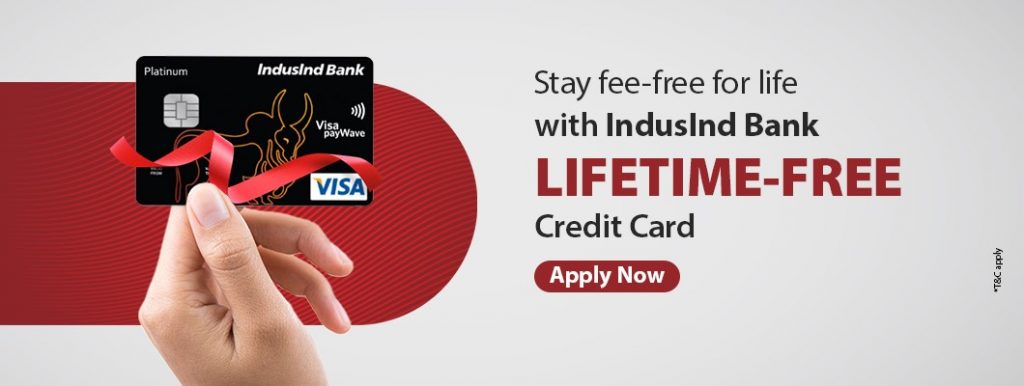
How to Manage Multiple Credit Cards Successfully
Posted on Monday, May 1st, 2023 | By IndusInd Bank
Credit cards can be a great way to build your credit, earn rewards, and get discounts on purchases. But if you don’t manage them carefully, they can lead you into debt quickly.
If you have multiple credit cards, it’s important to stay organized and keep track of your spending. Here are some tips to manage multiple credit cards successfully.
- Understand credit utilization
It’s important that you understand how your credit utilization affects your credit score when managing multiple cards. Your credit utilization is defined as the total amount of credit you have used compared to the total amount of credit you have available to you.
This can become a tricky factor as you manage multiple credit cards. It’s important to note your individual limits for each card and make sure you don’t exceed your cumulative credit limit when using disparate cards. The best way to maintain a good credit utilization ratio is to try to keep the total amount you’ve charged on all your credit cards at or below 30% of your available credit limit.
Remember that if you pay your balance off in full every month, the same will have a positive impact on your credit score. It’s important to watch your credit utilization and keep it as low as possible.
- Consider balance transfer
Balance Transfer is a great option if you are managing multiple credit cards and need to consolidate your credit card debt into a single loan. A balance transfer is simply transferring the balance from your old credit cards to a single card with a lower interest rate. This strategy can help you simplify your debt and save money in the process.
When you’re planning your balance transfer, make sure to pay attention to the details, such as the fine print and any terms associated with the transfer. Also, be aware that if you’re transferring balances from multiple cards, the balance transfer limit will likely be lower than the combined balance of all the accounts you’re transferring from. Make sure to keep this in mind when you’re calculating your balance transfer limit.
Finally, be aware that the issuer may charge you a balance transfer fee, usually a percentage of the amount being transferred. Before you sign up for a balance transfer, it’s important to consider the fees and make sure you can afford them. However, if done right, a balance transfer can help you save money and simplify your debt, meaning you can devote more time and money to other financial goals.
- Make your payments on time
Making your payments on time is an essential part of successfully managing multiple credit cards. Late payments can have a negative impact on your credit score and the interest rates you pay in the future.
To ensure that you make your payments on time, set up automated payments for each of your credit cards. This way, you won’t have to worry about forgetting to make a payment and can rest assured that your credit cards are always paid on time.
On a related note, try to pay off your credit card debt as quickly as possible. Some people suggest paying the card with the highest interest rate first, while others suggest paying off the balance with the smallest amount first. Both of these strategies can help you gain control of your credit card debt and ensure that you’re making regular payments to all of your cards.
Finally, take time to review your credit card statements each month and check for any discrepancies. This is an important step in ensuring that you’re not paying for any charges that you don’t recognize and helps you identify any fraudulent activity. Doing so can save you time and money in the long run.

4. Pay more than the minimum balance
Paying more than the minimum balance is one of the best way to manage multiple credit cards effectively. Minimum payments can reduce your overall debt, but they don’t do much to reduce the principal amount of the debt. Paying more than the minimum can help you pay down the principal balance and save on interest payments in the long run.
5. Avoid opening too many new credit cards
It can be tempting to open too many credit cards to benefit from the rewards and bonuses offered, but this can quickly lead to a debt nightmare. Credit card debt leads to high interest payments and can be difficult to manage if you have multiple cards. When you find yourself with more cards than you can handle, consider closing or consolidating your credit card accounts.
6. Check your credit report regularly
It’s essential to keep track of your credit cards, and one of the most important tools to do this is your credit report. A credit report is a detailed record of your credit history, which can be used by lenders to make decisions about loans and credit. Checking your credit report regularly is essential to make sure the information is accurate, and you can use it to identify any account delinquencies or suspicious activity. By monitoring your credit report regularly, you can help protect yourself from identity theft and make sure all your information is accurate.
Following the above tips would help you manage your credit cards smartly for better financial health and stability overtime.
If you’re looking for a credit card that alone can satisfy the need of multiple credit cards and encompasses all the benefits and rewards to match your lifestyle, check our offerings and you’ll definitely find your ideal pick. IndusInd Bank offers a range of lifetime free credit cards that come with Total Protect feature and enable you to enjoy exquisite privileges and help save more with reward points that never expire.
Disclaimer: The information provided in this article is generic in nature and for informational purposes only. It is not a substitute for specific advice in your own circumstances. Hence, you are advised to consult your financial advisor before making any financial decision. IndusInd Bank Limited (IBL) does not influence the views of the author in any way. IBL and the author shall not be responsible for any direct/indirect loss or liability incurred by the reader for taking any financial decisions based on the contents and information.



 Offers
Offers Rates
Rates Debit Card Related
Debit Card Related Credit Card Related
Credit Card Related Manage Mandate(s)
Manage Mandate(s) Get Mini Statement
Get Mini Statement
 categories
categories Bloggers
Bloggers Blog collection
Blog collection Press Release
Press Release


